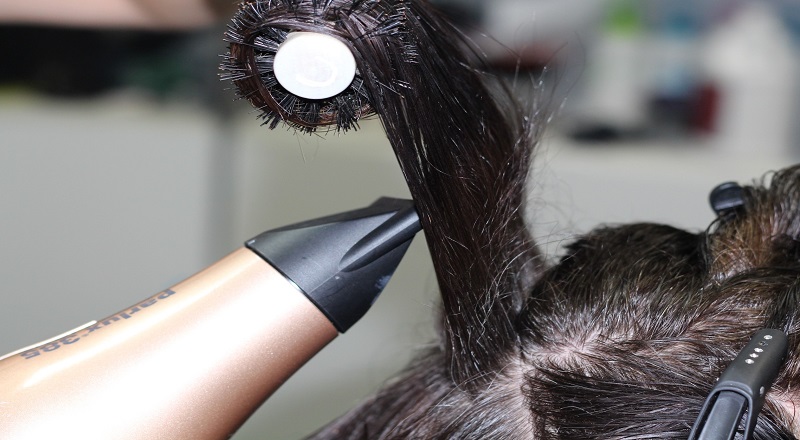Postgraduate courses in Hairdressing
The world of hairdressing allows you to be creative, precise and play an important role in many clients’ lives. We all love our hair and have a particular way we like it to be but it’s often not a look we can achieve ourselves.
I don’t know about you but I do not trust myself with scissors near my hair! Queue the hairdresser.
I, for one, am grateful for hairdressing courses from cutting, colouring to styling, we will always need the professionals to save us!
If you’re looking to add to your degree and be the best hairdresser or stylist you can be, why not look further into exploring your options?
Duties of a hairdresser
The day to day duties of a hairdresser will change depending on your specific client and their needs and wants. As a hairdresser, you will typically work 9-6 and up to six days a week. If you have your own salon or are a freelancer, you will be able to choose your own working hours. As a hair stylist you may work weekends and have to travel for events such as weddings. General duties in this role include:
- Consult with clients
- Determine clients’ needs, specifications and personal preferences
- Shampoo, condition, dry clients’ hair
- Use treatment products for different hair types
- Use different tools such as hair straighteners, hair curlers, hair dryers etc
- Cut, style, perm, colour hair
- Ensure stock upkeep in a salon
- Greet and engage with clients in a friendly manner
- Recommend suitable hair products for clients
- Identify different issues such as dry/dead hair, scalp conditions and advise clients on treatment or seeking treatment
- Clean and sterilize tools and equipment
Courses
There are many courses available across the UK. Some courses offer the option of studying both part-time or full time. Some courses may have restrictions or changes due to Covid-19. More detail on courses can be found on course overviews. Examples of courses include:
Make-up and Hair Design Futures (University course)
Postgraduate courses in this area will help students to explore a rapidly changing world of beauty in relation to beauty cultures and creature design using speculative design strategies and augmented realities. These courses cover both practice and theory as well as principles of speculative and critical design proposal through envisioning new features. You may also see your creations come to life in magazines, films and online platforms as a result of a course and experience in this area.
In the beauty industry, a lot of the courses are not necessarily university courses but often in particular beauty or hair academies who specialize in particular areas. When applying for postgraduate degrees there are a range of courses available to help you to specialise in specific areas such as colour (foil, blondes, creative colour) and cut (men and women) and you can mostly achieve a certificate, diploma or advanced diploma level in your chosen area.
Entry requirements
Entry requirements will differ from course to course so it is important to research your desired course in detail to ensure you meet the criteria. In most cases, experience in working as a hairdresser or hair stylist is required to take on a course in this area to develop your career further. In other cases, you may be able to apply for certain courses with a bachelor’s degree or degree in a related area in the beauty field. A lot of the time entry requirements are specific to certain courses in the beauty industry, especially if you take a course with a hair academy route.
Salary
The salary of a hairdresser/hair stylist can differ depending on your employment type and sometimes location. The average salary of a hairdresser and stylist is believed to be around £25,000 annually. You may earn around £12.83 an hour. Entry level positions can begin around £16,400 and with time and experience, salaries can rise to around £27,000. As a freelance or mobile hair stylist you may earn anything from £15-£50 an hour, depending on experience. All figures are based on estimates and are to be used as a guide only.
Skills and requirements
Skills and requirements helpful in this area include:
- Strong communication skills
- A friendly manner
- The ability to work well under pressure
- Attention to detail
- Very precise
- A passion for hair
- Excellent organization skills
- Time management skills
- Excellent customer service skills
- Patient
- Helpful
- Ability to follow instructions


